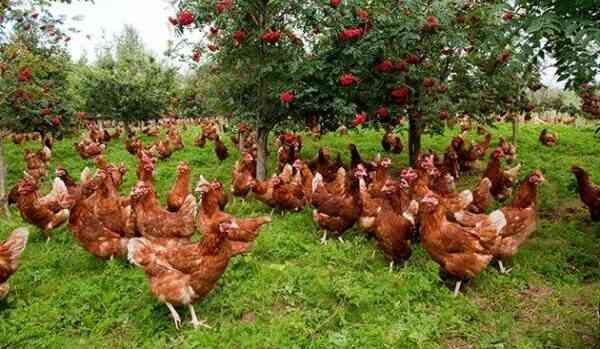Among all other animals and birds raised on an industrial scale, chickens occupy a special place. They are bred for both eggs and meat, and in a number of countries they are an integral part of traditional cooking. They spread throughout the world in ancient times, and since then you can find chickens in any corner of the Earth, even on many remote islands. Being fairly unpretentious birds, they do well in captivity and breed quickly.
Interesting facts about chickens
- They usually begin laying eggs at 20 weeks of age, give or take, depending on the breed.
- There are breeds of hens that never lay eggs due to a narrow pelvis or other natural anomalies.
- Most breeds of chickens lay the maximum number of eggs in the first two years of life, but then the number of eggs begins to decline.
- Chickens are able to remember «in the face» all relatives in your chicken coop.
- People think that chickens communicate with each other with simple clicks and clucks, but in fact, this is the language of communication. Researchers have described over thirty different meanings of the bird’s «talk».
- These pet birds are able to experience emotions, as well as express feelings of compassion and mercy (interesting facts about birds).
- The ancestors of modern chickens originated in Asia, where they were domesticated.
- The chicken does not need a special nest for laying eggs – she can do it almost anywhere.
- The process of laying eggs in chickens «starts» only under light, and it does not matter, artificial or natural.
- It takes about 25 hours for the chicken to fully develop an egg in the body.
- The size of eggs in young chickens is always smaller than in old ones.
- A double yolk egg may have a perfectly normal amount of protein, but the egg may be much larger than usual. There can be more than two yolks.
- Chickens love to lay eggs together, gathering together two or three layers.
- Sometimes chickens will eat eggs, even their own. An egg that is damaged during laying is likely to be eaten by the laying hen herself.
- A brood hen will incubate any eggs, not distinguishing between her own and others, fertilized and infertile.
- Calcium-rich foods should be included in the chicken diet, as a large amount of it is spent on the formation of eggshells (interesting facts about minerals).
- There are about 3 times more than people.
- The yolk in a raw chicken egg is always at an equal distance from the shell on all sides.
- Fresh chicken eggs sink in water, and rotten eggs float on the surface.
- The color of the shell of a chicken egg has nothing to do with its quality.
- Despite the fact that chickens sometimes lay eggs with two or more yolks, only one chicken can still develop from them, since it will be too crowded for two embryos in an egg.
- Embryos begin to develop into chicken embryos only during the process of incubation or incubation, even if the egg has been fertilized.
- Eggs have an unpleasant feature of rotting in groups. If at least one egg in the egg basket is rotten and it was not removed in a timely manner, then the rest of the eggs will also soon deteriorate.
- Judging by the archaeological finds, chickens were domesticated about 8000-10000 years ago in ancient China (interesting facts about Ancient China).
- Domestic chicken is able to fly up to a height of two meters.
- Chickens remember «in the face» not only their relatives, but also people. In total, their memory is capable of holding up to a hundred «persons».
- The weight of an average chicken does not exceed 3.5 kg, but at the same time meat breeds weigh 2-2.5 times more than laying hens.
- Scientific experiments have confirmed that chickens can be hypnotized.
- A rooster named Mike became famous in the United States in the middle of the 20th century after he managed to live with an almost completely severed head of whole 18 months.
- Wild relatives of chickens lay only 10-15 eggs per year.
